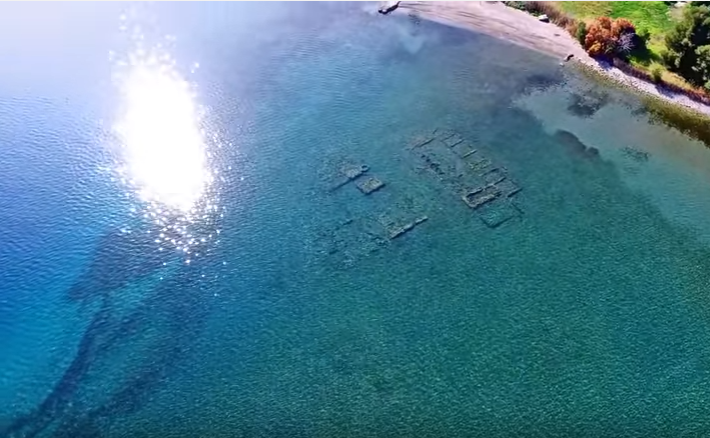Nearly 2,400 years ago, the philosopher Plato described Atlantis as a mighty state that possessed 10,000 chariots, advanced technologies, vast numbers of elephants and bulls, and a series of complex canals. And now, in a new documentary, a U.K.-based group claims to have discovered the ruins of this once-flourishing society on what is now the Atlantic coast of Spain.
But one archaeologist said that the ruins likely belong to another ancient culture, and several researchers interviewed by Live Science could barely contain their exasperation when they heard the news of yet another Atlantis discovery. (People have made dozens of such claims over the years, locating the legendary society in Antarctica, Bolivia, Turkey, Germany, Malta, the Caribbean and elsewhere.)
“Bless their hearts — if they’re correct about this, that would be awesome,” said Ken Feder, a professor of anthropology at Central Connecticut State University. “But here’s my problem: As an archaeologist, I know that I always need to be in the company of my bullshit detector. And these guys, they have done just about everything they possibly can to set off my bullshit detector.”
Seen from space
It’s debatable whether Atlantis even existed. Plato described the ancient society in about 330 B.C., writing that, in effect, a politician named Critias heard about the society through a game of historic telephone dating back to ancient Egypt. Atlantis served as the perfect example of a society that had become corrupted by its material wealth, advanced technology and military might. Then, the gods destroyed Atlantis about 9,000 years ago in a cataclysmic event, Plato wrote.
For centuries, scholars viewed Plato’s writings on Atlantis as allegory. But that perspective changed in 1882, when Minnesota’s U.S. Rep. Ignatius Donnelly (1831-1901), an amateur scientist, published the book “Atlantis: The Antediluvian World” (Harper & Brothers), which claimed that Atlantis was a real place.
Since then, people have searched for the sunken remains of the city. In the most recent example, employees at Merlin Burrows pinpointed, two years ago, what may be Atlantis in Spain, Bruce Blackburn, the CEO of Merlin Burrows, told Live Science. The company, based in North Yorkshire, England, uses historical records and satellite data to find archaeological sites.
Blackburn’s team used data taken from commercial satellites, such as Landsat 5 and Landsat 8 (which also supply data for Google Earth), to find the site, which is located in Spain’s Doñana National Park. “Obviously, it’s a very bold thing to say,” said Blackburn, who has a background in business and finance. “Everybody is going to have [one of] two opinions. One is that ‘This is great. Let’s have a look at it,’ and one will be ‘That’s a load of rubbish.'”
Read more HERE






































